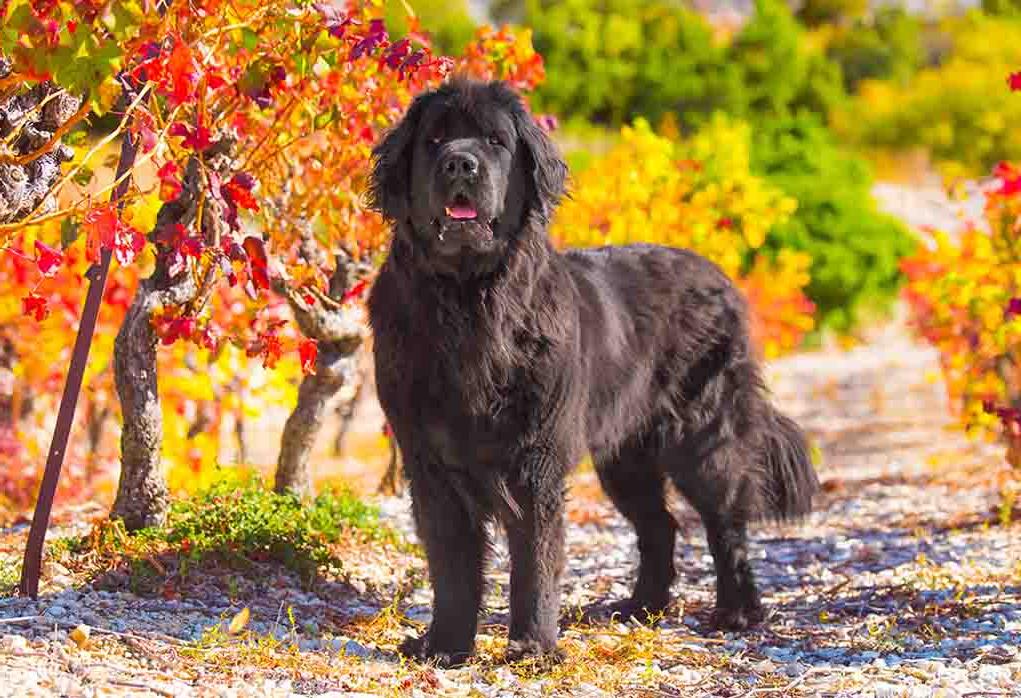- Breed Category: Working Group
- Country of Origin: Canada
- Average Height: Males 71 cm (28 in), Females 66 cm (26 in)
- Average Weight: Males 68 kg (150 lbs), Females 54 kg (120 lbs)
- Average Life Span: 8 to 10 years
- Grooming Requirements: Regular brushing, occasional baths
- Exercise Requirements: Daily walks and playtime
- Coat Type: Thick, water-resistant double coat
- Coat Color Variations: Black, brown, grey, Landseer
- Shedding Level: Moderate to high
- Ear Type: Drop ears
- Tail Type: Long, strong, and bushy
- Temperament: Gentle, patient, and loyal
- Intelligence Level: High
- Barking Tendency: Low
- Compatibility with Children: Excellent
- Compatibility with Other Pets: Generally good
- Training Ease: Relatively easy with consistency
- Common Health Issues: Hip dysplasia, heart conditions
- Dietary Needs: High-quality large breed diet
- Energy Level: Moderate
- Drooling Tendency: High
- Sensitivity to Weather: Tolerates cold well, heat sensitive
- Overall Maintenance Level: Moderate to high
- Original Purpose: Water rescue, working dog
- Year of Recognition by Kennel Clubs: 1886
- Famous Breed Representatives: Seaman, Lewis and Clark’s dog
- Apartment Friendly: Not ideal due to size
- Best Suited For: Families, active owners, large spaces
- Cost of Ownership: Moderate to high
- Unique Traits: Excellent swimmers, webbed feet
- Cultural Significance: Featured in literature and art
- Popularity Rank: Moderately popular
Imagine a dog that’s not just a pet but a gentle giant with a heart as big as its paws. Meet the Newfoundland, a breed known for its strength, loyalty, and sweet nature. These dogs are more than just their impressive size; they’re renowned for their swimming prowess and lifesaving instincts. Originally bred as working dogs in Newfoundland, Canada, they’ve been companions to fishermen and families alike. This article will dive into the unique characteristics that make Newfoundlands stand out, explore their rich history, and offer insights into their care. Whether you’re considering adding one to your family or just curious, you’ll find everything you need to know about these remarkable dogs right here.
History and Origin of the Newfoundland Dog
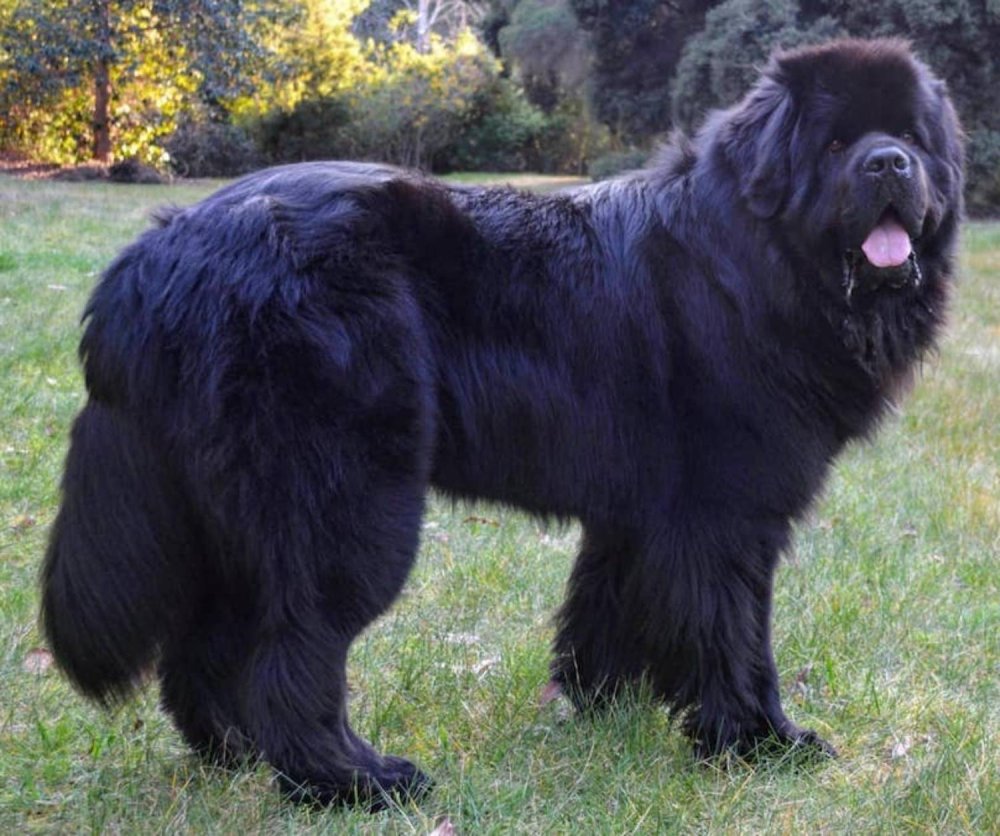
Early Development of the Breed
The Newfoundland dog traces its roots back to the rugged coasts of Newfoundland, Canada. These dogs were initially bred by local fishermen who needed a strong, reliable companion to assist with their daily tasks. Over time, the breed developed its distinctive traits: a thick, water-resistant coat, webbed feet, and a powerful build. These features made them perfectly suited for the harsh maritime environment.
Role in Maritime Activities and Rescue Operations
Newfoundlands have long been celebrated for their exceptional swimming abilities. Historically, they played a crucial role in maritime activities, helping fishermen haul nets and retrieve lost gear. Their natural instinct for rescue is legendary, with countless stories of Newfoundlands saving people from drowning. This lifesaving ability has earned them a place in the hearts of many coastal communities.
Key Historical Figures and Events
One notable figure in the breed’s history is Sir Edwin Landseer, a 19th-century artist who frequently featured Newfoundlands in his paintings, bringing them to the attention of the wider public. Another significant event was the breed’s involvement in the rescue of shipwrecked sailors, which solidified their reputation as heroic and dependable companions.
Physical Characteristics of the Newfoundland Dog
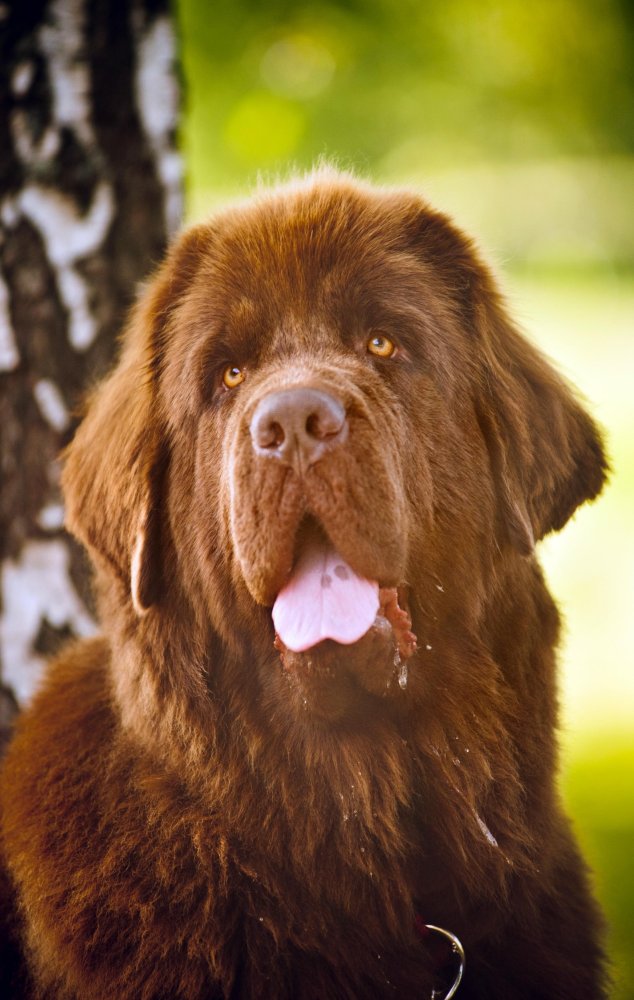
Appearance
Newfoundlands are truly impressive in size, often weighing between 50 to 70 kilograms. Their large, muscular build is complemented by a thick, double-layered coat that comes in a variety of colours, including black, brown, grey, and Landseer, which is a striking black and white pattern. This coat not only adds to their majestic appearance but also serves a practical purpose, providing insulation against cold water.
Unique Physical Traits
One of the most distinctive features of the Newfoundland is its webbed feet. These webbed toes make them exceptional swimmers, allowing them to glide through water with ease. Their powerful, broad tail acts like a rudder, aiding in navigation while swimming. This combination of traits makes them natural water rescue dogs, a role they have excelled in for centuries.
Temperament and Behaviour of the Newfoundland Dog
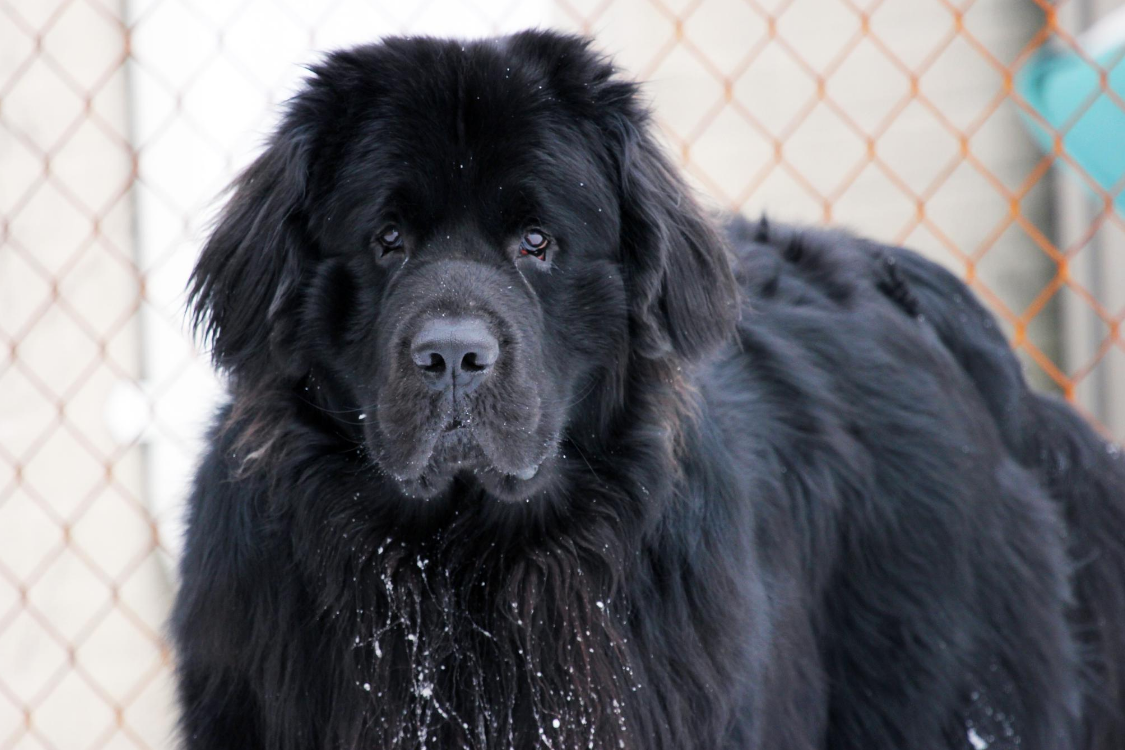
Typical Personality Traits
Newfoundlands are known for their gentle and calm nature. They possess a remarkable intelligence that makes them quick learners, yet they remain patient and composed. This combination of traits makes them not only excellent companions but also reliable working dogs.
Suitability as a Family Pet and Working Dog
These dogs are incredibly versatile. As family pets, they are affectionate and protective, often forming strong bonds with their human families. Their gentle disposition makes them particularly suited for homes with children. As working dogs, their strength and intelligence shine, whether they’re assisting in water rescues or simply being a loyal companion.
Interaction with Children and Other Animals
Newfoundlands are famously good with children. Their patient and tolerant nature means they can handle the energy and unpredictability of kids with ease. They also tend to get along well with other animals, making them a harmonious addition to multi-pet households.
Training and Exercise Needs of the Newfoundland Dog

Importance of Early Training and Socialisation
Starting early with training and socialisation is crucial for Newfoundlands. These gentle giants need to learn how to interact with people and other animals from a young age. Early exposure helps them grow into well-mannered adults, preventing any unwanted behaviours. Socialisation also ensures they remain calm and friendly in various situations.
Recommended Training Techniques
Positive reinforcement is the way to go with Newfoundlands. They respond well to praise and treats, making training sessions enjoyable for both you and your dog. Consistency is key, so keep commands clear and simple. Patience is important too, as these dogs can be a bit stubborn at times.
Daily Exercise Requirements and Activities They Enjoy
Newfoundlands need regular exercise to stay healthy and happy. A couple of walks a day, combined with some playtime, usually does the trick. They love swimming, so if you have access to water, let them take a dip. It’s a great way for them to burn off energy and have fun.
Health and Lifespan of the Newfoundland Dog

Common Health Issues
Newfoundlands, like many large breeds, can face specific health challenges. Hip and elbow dysplasia are common, given their size and weight. Heart conditions, particularly subvalvular aortic stenosis, are also something to watch out for. Regular vet check-ups can help catch these issues early.
Average Lifespan and Health Tips
Typically, Newfoundlands live between 8 to 10 years. To help them reach the upper end of this range, a balanced diet and regular exercise are essential. Keep their weight in check to reduce stress on their joints. Swimming is a fantastic low-impact exercise that they naturally enjoy.
Preventative Care Recommendations
- Regular vet visits for early detection of health issues.
- Maintain a healthy diet to prevent obesity.
- Ensure they get enough exercise, focusing on joint-friendly activities.
- Brush their coat regularly to prevent matting and skin issues.
- Keep an eye on their heart health with routine check-ups.
Grooming and Maintenance of the Newfoundland Dog
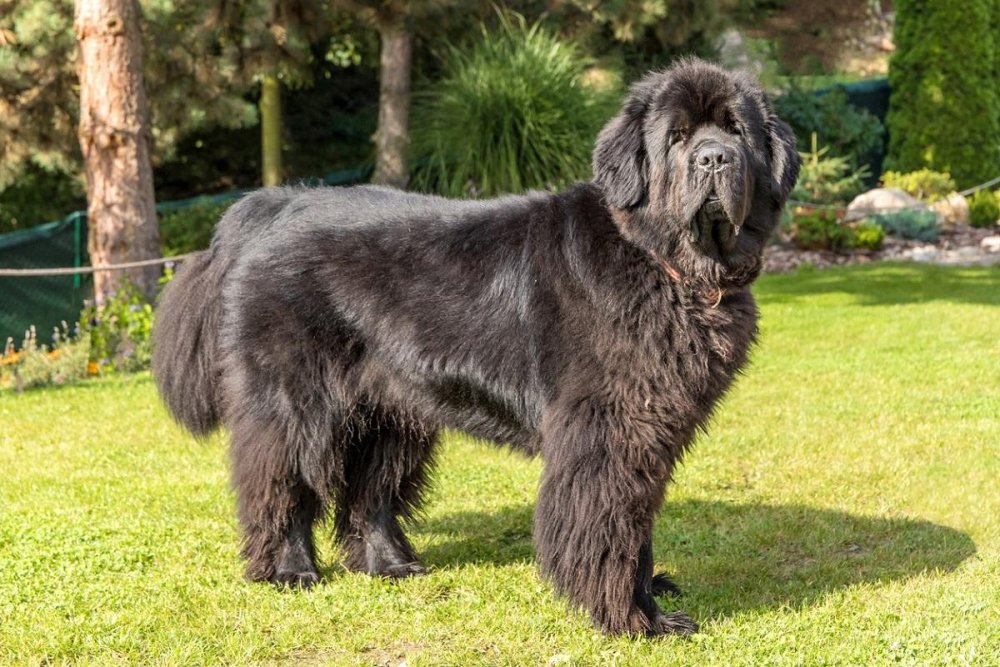
Coat Care and Grooming Routines
Newfoundlands have a thick, double-layered coat that requires regular attention. A good brushing session two to three times a week helps keep their coat in top condition. This not only removes loose hair but also prevents matting and tangles. A slicker brush and a wide-toothed comb are your best friends here. Regular grooming also gives you a chance to check for any skin issues or parasites.
Shedding and Seasonal Grooming Tips
These gentle giants are known for their shedding, especially during seasonal changes. Twice a year, they blow their coat, which means you’ll see more hair around the house. During these times, daily brushing can help manage the shedding and keep your home a bit tidier. Bathing them every couple of months, or as needed, will also help maintain their coat’s health and shine. Just make sure to dry them thoroughly to avoid any skin problems.
Diet and Nutrition for the Newfoundland Dog
Nutritional Needs for Optimal Health
Feeding a Newfoundland requires attention to their unique nutritional needs. These large dogs need a diet rich in high-quality proteins to support their muscle mass, along with healthy fats for energy. Omega-3 fatty acids are particularly beneficial for their joint health and coat condition. Don’t forget about fibre, which aids digestion and keeps their system running smoothly.
Foods to Include and Avoid
Include lean meats like chicken and fish, along with vegetables such as carrots and sweet potatoes. These provide essential vitamins and minerals. Avoid foods high in fillers and artificial additives, as they can lead to weight gain and other health issues. Chocolate, grapes, and onions are toxic to dogs and should be kept out of reach.
Feeding Schedules and Portion Recommendations
Newfoundlands do best with a consistent feeding schedule. Split their daily intake into two meals to prevent bloating, a common issue in large breeds. Portion sizes depend on their age, weight, and activity level, so it’s wise to consult with your vet for tailored advice. Always ensure they have access to fresh water, especially after exercise or meals.
Fun Facts and Trivia about the Newfoundland Dog
Interesting Tidbits about the Breed
Newfoundlands are not just known for their size and strength; they have some pretty cool quirks too. Did you know they have webbed feet? This unique feature makes them excellent swimmers, which is why they’re often called the “lifeguards of the dog world.” Their thick, water-resistant coat helps them stay warm even in icy waters, a trait that’s been invaluable in their history of water rescues.
Another fun fact is their gentle nature. Despite their imposing size, Newfoundlands are often referred to as “gentle giants.” They’re incredibly patient and good-natured, making them fantastic companions for families with children.
Famous Newfoundlands in Media or History
Newfoundlands have made their mark in history and media. One of the most famous Newfoundlands was Seaman, who accompanied Lewis and Clark on their expedition across America. His loyalty and bravery were well-documented, earning him a place in the annals of history.
In the world of art, Sir Edwin Landseer’s paintings often featured Newfoundlands, bringing their noble presence to the attention of the Victorian public. These dogs have also appeared in literature, such as in J.M. Barrie’s “Peter Pan,” where the family dog, Nana, is a Newfoundland.
Final Thoughts
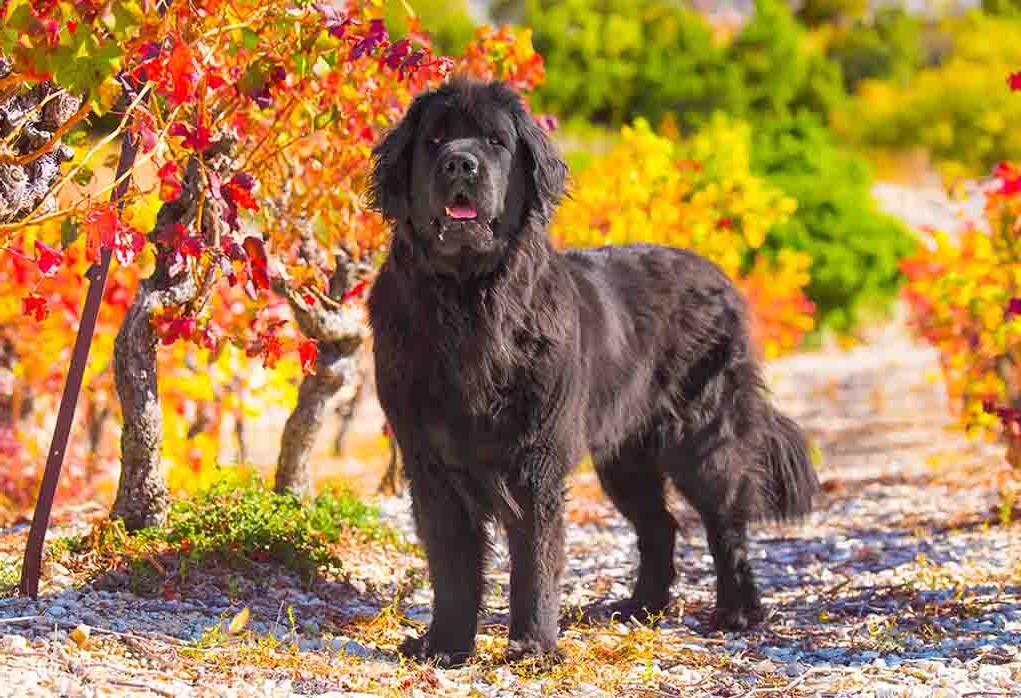
The Newfoundland dog is a gentle giant with a noble heart. Known for their strength and loyalty, these dogs offer both companionship and protection. While they require significant care and attention, their loving nature and unique abilities make them a rewarding addition to any family. Embrace the joy and responsibility of owning a Newfoundland, and you’ll gain a devoted friend for life. Consider welcoming this remarkable breed into your home and experience the profound bond they offer.
